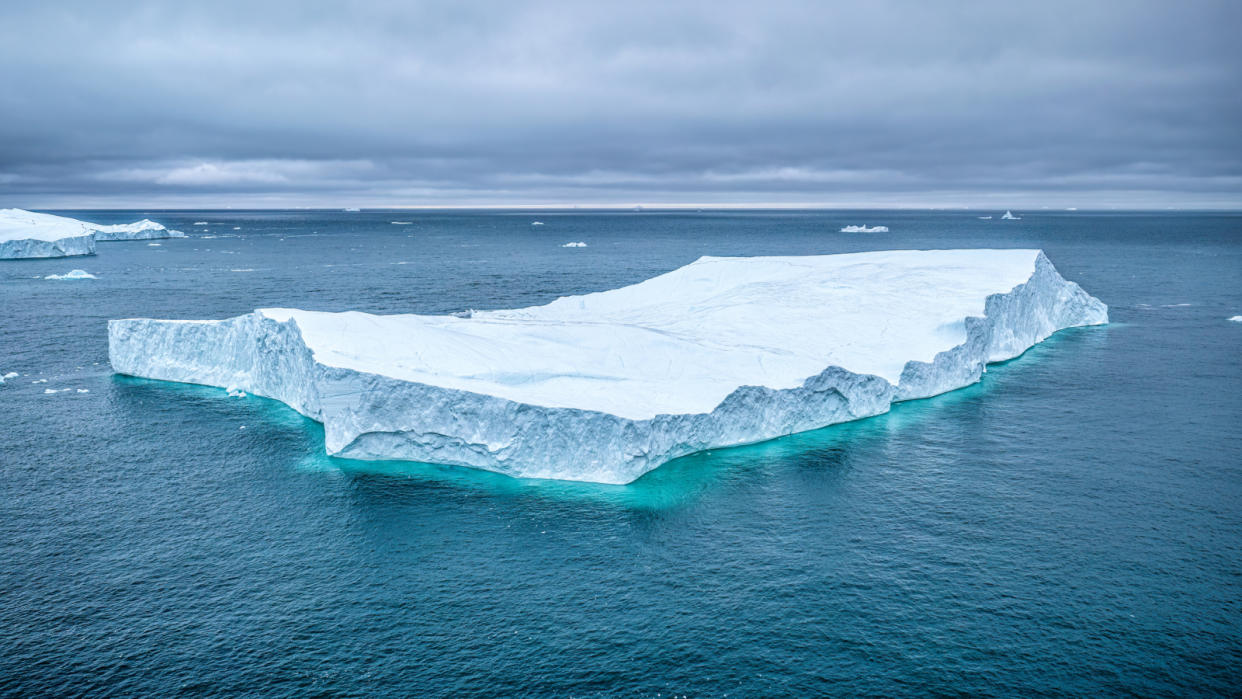Why does ice float?

Whether it's the cubes in your cocktail or a raft for Arctic seals, floating ice is a basic fact of nature we may take for granted.
Floating ice is "such a fundamental fact of the world, it's hard to truly imagine what the world would be like [without it]," said Brent Minchew, an associate professor of geophysics at the Massachusetts Institute of Technology.
But did you ever stop to think why ice floats on water, instead of sinking to the bottom? It has to do with the density of water.
Water ice, the solid state of water, floats because it is less dense than its liquid form. Most other substances, by contrast, become denser in the solid phase.
"Water is a very unusual substance," Claire Parkinson, a former climatologist at NASA's Goddard Space Flight Center in Maryland, told Live Science.
Related: Why is ice slippery?
Ice cubes float because of their molecular structure. A water molecule (H2O) is made of two hydrogen atoms and one oxygen atom. The hydrogen and oxygen atoms share electron pairs, forming covalent bonds. The positive charge of a hydrogen atom is attracted to the negatively charged oxygen atom of another water molecule, and the bond that forms between these molecules is known as a hydrogen bond.
When water freezes, these hydrogen bonds form a crystal lattice, Minchew told Live Science. Most of the ice on Earth's surface forms repeating hexagonal crystals. There's a lot of empty space within this lattice structure that fills with air, Minchew said, leading to ice's lower density.
This is why icebergs float in the ocean, even though they are between roughly 100 and 165 feet (30 and 50 meters) thick, according to the National Oceanic and Atmospheric Administration. That's a good thing, since floating ice allows life to flourish beneath the frozen surface of lakes and oceans. If ice sank, that would be a problem for the marine and aquatic life currently living in these underwater habitats, Parkinson said.
RELATED MYSTERIES
—What's the highest temperature water can freeze, and the lowest it can boil on Earth?
—How will sea levels change with climate change?
—'Earth's civilizations are shaped by what the ocean engine does,' says oceanographer Helen Czerski
Sea ice, which floats on top of the ocean's surface, is also crucial for ocean circulation, according to NASA's Earth Observatory. As it freezes, sea ice exudes salt and makes the water beneath it extremely salty and dense. This dense water created by the sea ice sinks to the bottom of the ocean and pushes up deep water to the surface, helping to circulate ocean water worldwide, Minchew explained.
The fact that ice floats could have profound impacts on some climate change tipping points. The West Antarctic ice sheet is an extension of ice that connects to land and is Antarctica's biggest contributor to sea level rise. A 2023 study published in the journal Nature Climate Change predicts that the floating ice shelves that make up the West Antarctic Ice Sheet will diminish rapidly over the next century as warming oceans melt the ice shelf from below.
This is part of a buoyancy-driven feedback of ocean temperatures on sea level rise, Minchew said, "all just because ice floats."